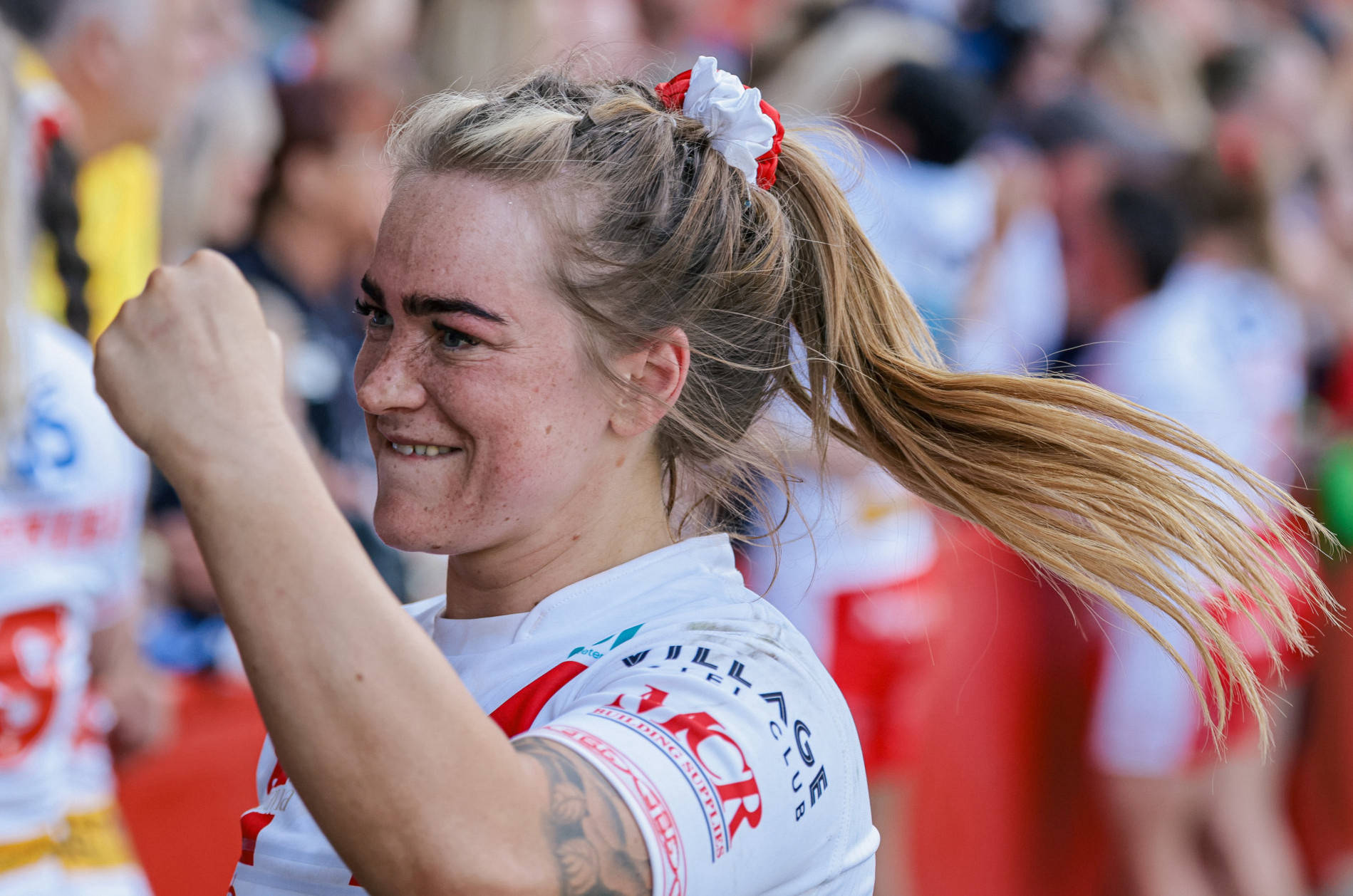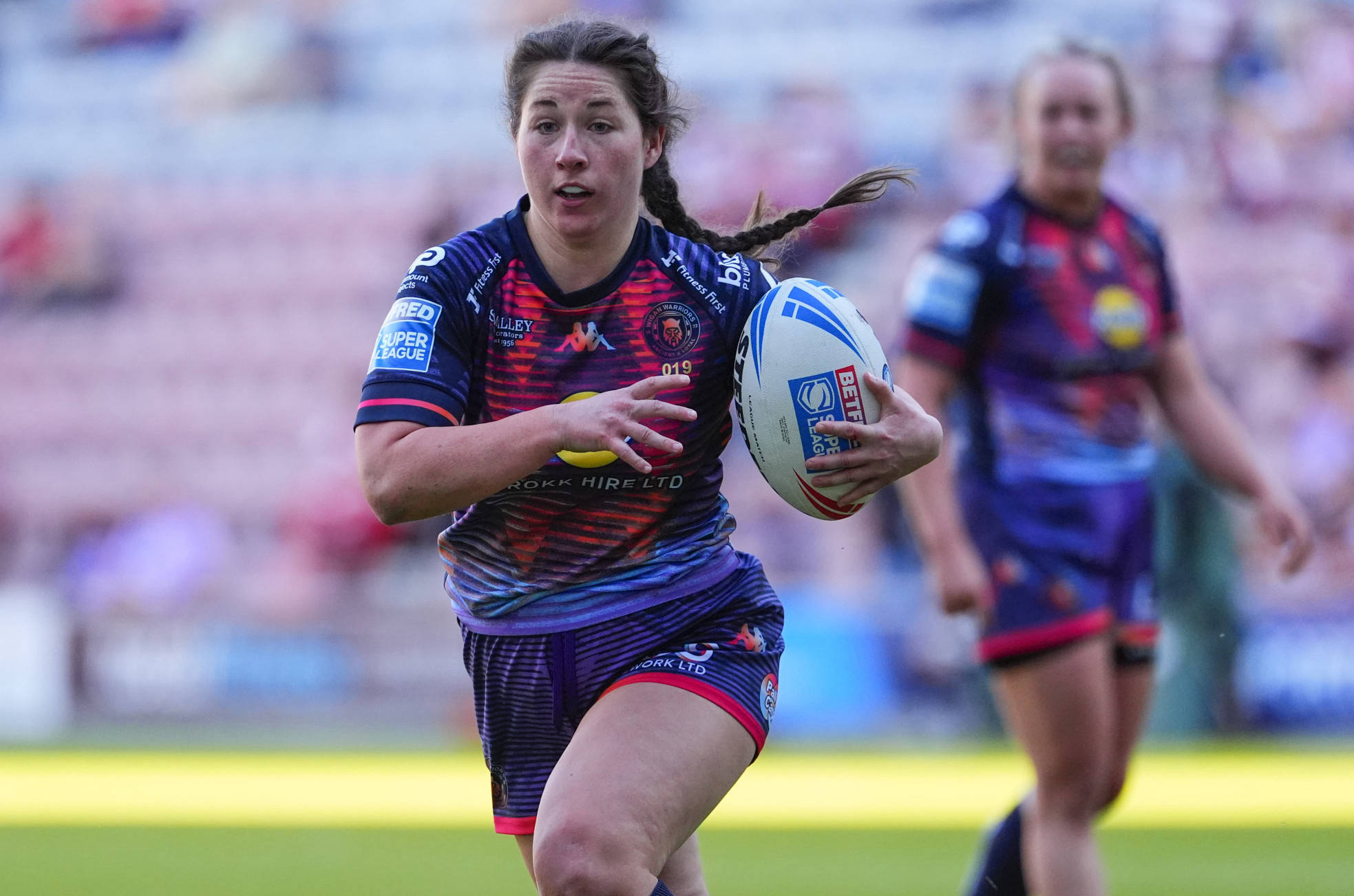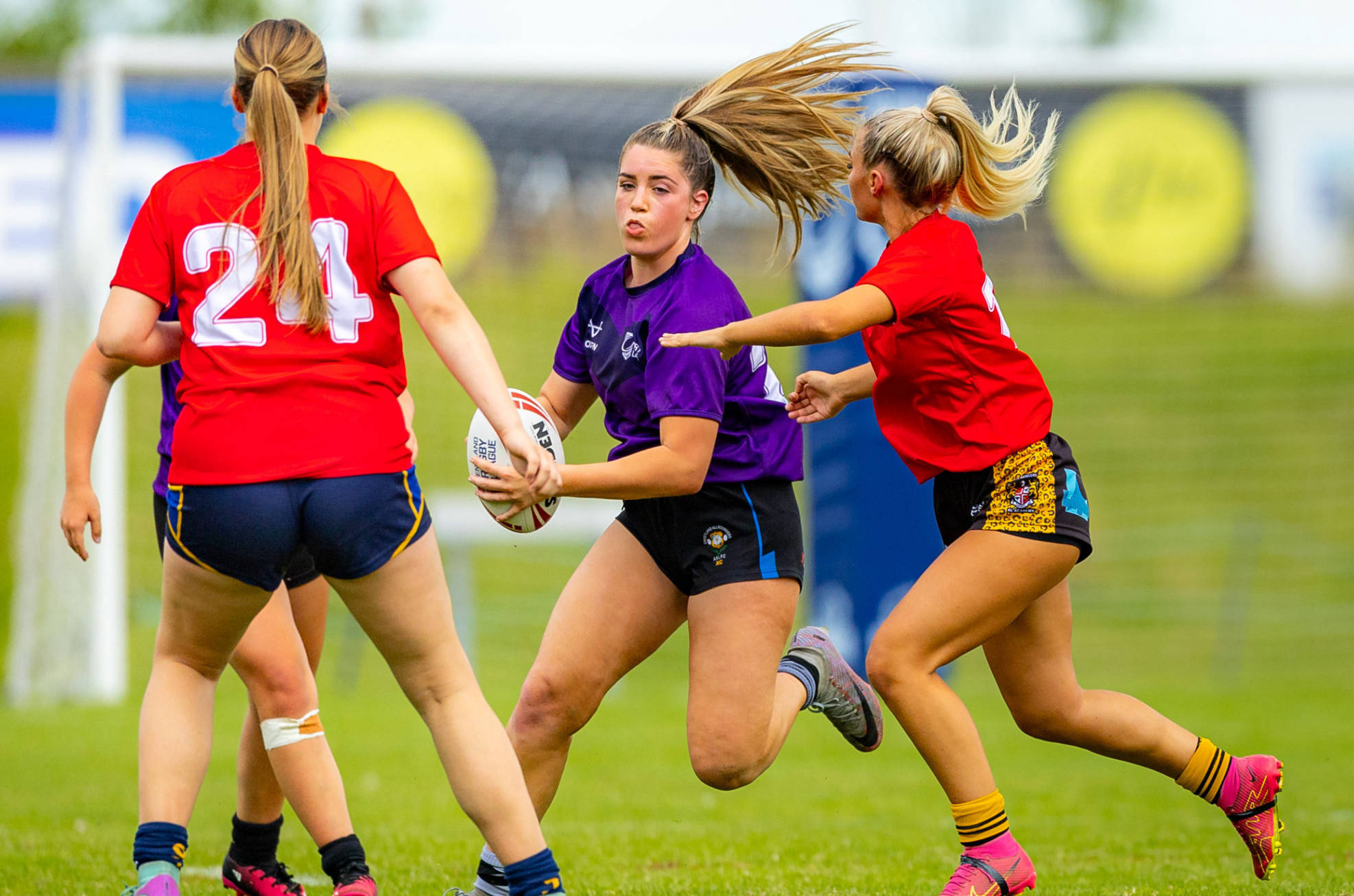
Jodie Cunningham, the reigning Woman of Steel who is also the RFL’s National Women’s and Girls’ Development Officer, has welcomed today’s confirmation that the Rugby Football League is among the first group of organisations working in partnership with Sport England to receive funding from its new funding model running from 2022-27.
The RFL has a foundational role in the sport and physical activity sector, and is therefore well-placed to help level up access to sport and physical activity across the country.
The RFL will receive an investment of £11.9m of Government funding spread across five years from April 2022 – awarded because it has committed to co-deliver change at a national and local level, to help more people enjoy the benefits of playing sport and being active.
“This is another huge lift for the sport, as Rugby League prepares to host three World Cups in England this autumn – Men’s, Women’s and Wheelchair – following their postponement in 2021,” said Cunningham, who is the captain of St Helens and a senior member of the England Women squad.
“I’ve been lucky enough to benefit from the development of Women’s and Girls’ Rugby League over the last few years, which has been one of the major success stories of the sport. Physical Disability and Learning Disability Rugby League have also emerged to enrich the lives of so many people, and this new funding agreement with Sport England will be focused on accelerating that progress.”
A total of 43 partner organisations have been selected by Sport England to share in £193m worth of funding due to their ability to influence positive change and improvement throughout the sector, their own networks, and beyond. This is the first step on a journey to revolutionise Sport England’s approach to long-term partnerships which will see it build new relationships with innovative organisations, as well with existing partners, local partners and delivery partners to further the Uniting the Movement strategy.
Sport England research shows that some groups are typically less active – like women, people with long-term health conditions, disabled people, people from ethnically diverse communities and lower socio-economic groups. Right now, the opportunities to get involved in sport and activity – and reap the rewards of being active – depend too much on your background, your gender, your bank balance and your postcode.
Marc Lovering, the RFL’s Director of Participation and Development, added: “As the Rugby League Dividend Report published in 2019 showed, our sport delivers significant social and economic impact in some of the most deprived parts of the country.
“We could not have done that without our long-running partnership with Sport England, so we are immensely grateful to have reached this new agreement, and aware of the responsibilities it involves.
“The funding will again be split under agreement with Sport England between supporting our England national teams, and with the majority to be invested in the development of the sport – with a focus on tackling inequalities and building stronger communities.
“We have taken significant steps to increase the sustainability of Community Rugby League over recent months with the introduction of the Our League Active participation membership scheme, while more than £10m of investment into facilities reaching more than 200 community clubs and organisations has been delivered by Rugby League World Cup 2021 in partnership with the RFL and Sport England through the CreatedBy Capital Grants Programme.
“This new funding model from Sport England provides longer-term financial security as organisations such as the RFL recover and reinvent following the Covid-19 pandemic.”
Tim Hollingsworth, CEO of Sport England, said: “Sport England’s Uniting the Movement strategy aims to help everyone play sport and get active– no matter who they are, where they live, or what their background. But we know that certain groups are more likely to be inactive and need targeted support and investment. We can only innovate and tackle these inequalities effectively with collective action, recognising that this is about long-term change.
“The RFL is one of a huge number of partners we are looking to work with on exactly this over the coming years. They play a foundational role within the sport and physical activity sector and are therefore well-placed to create the conditions for change. They will also act as a resource for other innovative organisations with the same goals as we seek to create a more equal society with everyone benefiting from sport and physical activity.”




